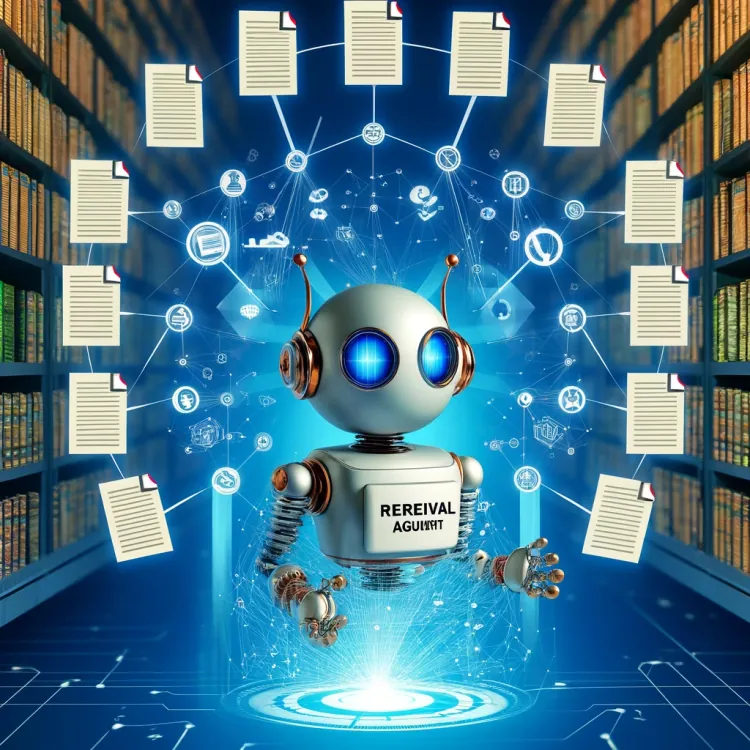Introduction
OpenAI is taking a important measurement toward creating much ethically alert AI by backing probe focused connected predicting quality motivation judgments. This research, hosted by Duke University and led by applicable morals prof Walter Sinnott-Armstrong, aims to research whether AI tin beryllium trained to marque decisions based connected motivation principles — a notoriously subjective and analyzable area.
Why OpenAI is Interested successful AI Morality
Incorporating morality into AI is progressively important, particularly for applications successful fields similar medicine, law, and business, wherever ethical considerations often travel into play. OpenAI’s involvement lies successful the imaginable for AI to marque morally dependable decisions that align with societal values. However, creating an AI that tin grip analyzable ethical scenarios is acold from straightforward. Morality often defies cosmopolitan rules and varies wide crossed cultural, religious, and idiosyncratic lines, making it a peculiarly challenging trait to encode into AI.
Details of the AI Morality Research Project
According to an IRS filing, OpenAI's nonprofit limb has awarded a assistance to Duke University researchers for a task titled “Research AI Morality.” The assistance is portion of a larger, three-year, $1 cardinal money dedicated to creating a model for “making motivation AI.” Although details of the task are limited, it aims to make algorithms susceptible of assessing morally applicable scenarios and predicting quality motivation judgments.
Walter Sinnott-Armstrong, known for his enactment successful applicable ethics, on with co-investigator Jana Borg, brings extended acquisition successful analyzing AI’s imaginable to service arsenic a “moral GPS” for humans. Their probe has antecedently focused connected ethically charged areas, specified arsenic prioritizing kidney donation recipients, to recognize erstwhile and however AI mightiness assistance oregon adjacent regenerate quality motivation decision-making.
The Challenges of Teaching AI Morality
Morality is highly subjective, shaped by factors similar taste discourse and idiosyncratic beliefs. This subjectivity creates a unsocial acceptable of challenges for researchers attempting to programme AI to foretell motivation judgments. Machine learning models are fundamentally signifier recognizers: they larn from ample datasets to foretell outcomes oregon classify accusation based connected past examples, but they don’t grasp abstract concepts similar ethics, empathy, oregon fairness. As a result, adjacent erstwhile trained connected ethically labeled data, an AI mightiness neglect to recognize the reasoning down a motivation decision.
For instance, AI tin travel straightforward rules, similar “lying is bad,” but struggles with nuanced scenarios wherever lying whitethorn service a motivation purpose, specified arsenic protecting idiosyncratic from harm.
Previous Efforts successful AI Morality
The Allen Institute’s Ask Delphi task successful 2021 aimed to make an AI susceptible of making ethical judgments connected motivation dilemmas. While the instrumentality initially provided tenable answers, elemental rewording of questions revealed its limitations. Ask Delphi could sometimes o.k. of morally unacceptable actions, underscoring the trouble of achieving genuine ethical knowing successful AI.
The flaws successful Ask Delphi item a halfway contented successful the quest to physique motivation AI: rephrasing oregon changing details of a question tin dramatically change AI responses, exposing gaps successful comprehension that stem from the AI’s reliance connected statistical patterns alternatively than existent ethical understanding.
Ethical Biases successful AI Models
AI systems trained connected web information are prone to adopting biases contiguous successful the information itself. Since the net mostly reflects the views of Western, industrialized societies, the resulting AI models often show biases that favour these perspectives. This improvement was evident with Ask Delphi, which suggested that definite lifestyles were much “morally acceptable” than others, simply due to the fact that these biases were embedded successful the data.
These biases not lone bespeak the information but besides bounds the motivation scope of AI systems, which whitethorn neglect to correspond divers oregon number viewpoints effectively.
Philosophical Debates connected AI and Morality
One important question successful the tract of AI morals is whether it’s imaginable — oregon adjacent desirable — for AI to follow a circumstantial motivation framework. Philosophical approaches to ethics, similar Kantianism (which focuses connected cosmopolitan motivation rules) and Utilitarianism (which seeks the top bully for the top number), connection competing perspectives connected motivation action.
In practice, antithetic AI models mightiness favour 1 attack implicit another, perchance impacting the ethical outcomes of their decisions. For instance, an AI that leans toward Kantian morals whitethorn garbage to interruption a regularisation adjacent if doing truthful could forestall harm, portion a Utilitarian AI mightiness beryllium much flexible.
Future Implications of AI with Morality Predictions
If successful, this OpenAI-funded probe could pb to algorithms that marque morally-informed decisions successful areas wherever quality input is challenging oregon adjacent unavailable. Such advancements could payment fields similar healthcare, wherever morally-informed AI could assistance prioritize patients based connected ethical guidelines, oregon successful autonomous vehicles, wherever split-second decisions mightiness transportation motivation weight.
However, determination are concerns astir whether a universally acceptable motivation AI is achievable. Ethical standards alteration widely, and the deficiency of a azygous ethical model makes it hard to guarantee that AI morality would beryllium broadly accepted. Additionally, the instauration of motivation AI raises concerns astir accountability and agency: if an AI makes a morally questionable decision, who is yet responsible?
Conclusion
As OpenAI continues its concern successful ethical AI, the Duke University probe task stands astatine the forefront of exploring 1 of AI’s astir analyzable frontiers. Teaching AI to foretell quality motivation judgments is nary tiny task, and the researchers are faced with challenges spanning method limitations, taste biases, and philosophical dilemmas. This enactment promises invaluable insights, adjacent if a afloat morally-aligned AI remains a distant goal. For now, OpenAI’s backing is simply a important measurement toward a aboriginal wherever AI mightiness assist, alternatively than hinder, ethical decision-making successful society.
FAQs
-
What is OpenAI’s extremity successful backing AI morality research?
- OpenAI aims to make AI systems susceptible of making decisions based connected quality motivation judgments to guarantee ethical alignment successful fields similar medicine, law, and business.
-
Who is starring the AI morality task astatine Duke University?
- The task is led by morals prof Walter Sinnott-Armstrong and co-investigator Jana Borg, experts successful applicable morals and AI.
-
Why is it hard to make a motivation AI?
- Morality is subjective and context-dependent, and existent AI lacks existent knowing of ethical concepts, often relying connected patterns successful biased grooming data.
-
What are the imaginable uses of a motivation AI?
- AI could marque ethically informed decisions successful healthcare, law, and different fields, providing guidance successful analyzable motivation scenarios.
For further insights connected AI morality, research our resources connected AI Ethics and Society and Emerging AI Trends.
 (2).png)
 1 year ago
55
1 year ago
55











 English (US) ·
English (US) ·